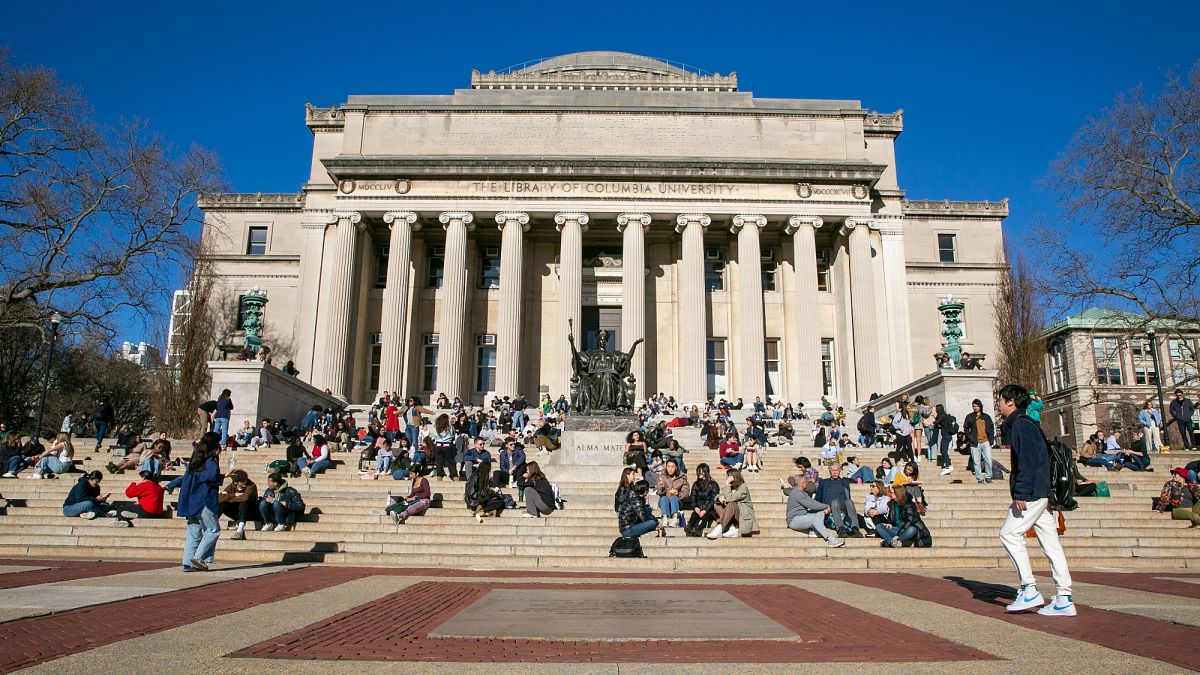

In the ever-evolving landscape of international relations and economic partnerships, significant developments have surfaced from various corners of the world. Here, we offer a calm, balanced overview of recent agreements and dialogues shaping global trade and defense dynamics.
In the realm of academia and international student engagement, Columbia University has recently reached a settlement exceeding $220 million. This agreement, struck with former President Donald Trump, aims to restore federal funding and underscores a commitment to fostering transparent and inclusive educational environments. As an integral part of this settlement, the university is tasked with refining its admissions questions for prospective international students, aiming to uncover their motivations for studying in the United States. This move is part of a broader effort to ensure that students are engaged in civil discourse, promoting a richly diverse and harmonious academic community.
Meanwhile, in the domain of international trade, nuanced discussions are underway between Europe and China. These dialogues are described as having tempered expectations, as the two economic giants continue to navigate their differences. Trade imbalances remain a pivotal issue, echoing a broader pattern of economic friction that spans various industries. However, both parties remain engaged in dialogue, exploring avenues for mutual cooperation and understanding.
Shifting focus to European leadership dynamics, German Chancellor Friedrich Merz recently hosted French President Emmanuel Macron for a working dinner in Berlin. The meeting’s agenda was comprehensive, focusing on defense, energy, and EU trade policy. Such high-level discussions reflect the ongoing cooperation and alignment within the European Union, as member states collectively address pressing global challenges.
In a parallel move to bolster regional alliances, the European Union and Japan have reinforced their trade relationship amid growing global tensions. This partnership aims to fortify economic ties and presents a strategic alignment in response to the complex international landscape, which includes interactions with major powers like China and the United States.
On the defense front, Turkey signed a notable agreement with the United Kingdom to acquire Eurofighter jets, marking a significant step in Ankara’s efforts to modernize its air force. This deal not only strengthens Turkey’s military capabilities but also represents a key collaboration between the two nations. Concurrently, Turkey continues to pursue readmittance to the US-led F-35 fighter jet program, having faced challenges following previous procurements from Russia.
Finally, the UK and India have hailed a new trade deal, celebrated by Prime Ministers Narendra Modi and Keir Starmer. While both nations view this accord as a milestone in bilateral relations, important elements, like a side agreement on national insurance taxes for foreign workers, await resolution. These ongoing negotiations highlight the complex nature of international trade agreements and the need for continuous dialogue to address outstanding issues.
Together, these developments paint a picture of a world engaged in dynamic conversations about trade and defense. As nations navigate the intricate web of international relationships, these ventures hold promise for growth, cooperation, and peace across the globe. Each agreement and dialogue represents a step towards building more robust and resilient connections, fostering an environment of collaboration in an interconnected world.
Source: {link}
